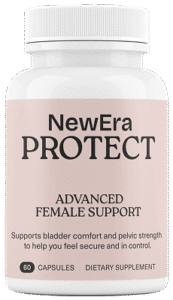Clear Skin Confidence: A Guide to Managing Acne on Darker Skin Tones
Acne is one of the most common skin conditions in the world, affecting millions of people across all age groups....

Acne is one of the most common skin conditions in the world, affecting millions of people across all age groups. However, when it comes to darker skin tones, acne can present unique challenges. These include not only the development of pimples and breakouts but also the aftermath — such as dark spots, hyperpigmentation, and even keloid scarring. If you or someone you know is looking for effective ways to manage acne on dark skin, you’re not alone. In this article, we will explore causes, solutions, and skincare practices designed to help darker complexions heal and thrive.
Understanding Acne and Its Causes
Acne occurs when pores become clogged with oil, dead skin cells, and bacteria. This results in blackheads, whiteheads, and inflamed pimples. Hormonal changes, stress, diet, and skincare routines can all play a role in acne development.
For individuals with darker skin, inflammation can leave behind post-inflammatory hyperpigmentation (PIH), a common concern that appears as dark spots or patches where the acne once existed. These marks may linger even after the acne itself has cleared up, making it crucial to treat both the acne and its aftereffects carefully.
Why Darker Skin Reacts Differently
Melanin, the pigment responsible for darker skin tones, is more concentrated in people of African, Hispanic, Middle Eastern, and South Asian descent. While melanin offers natural protection against sun damage, it also means the skin is more prone to hyperpigmentation and scarring after inflammation or trauma, such as acne.
Additionally, some acne treatments that are suitable for lighter skin tones may be too harsh for darker complexions. Overuse of certain exfoliants, retinoids, or lightening agents can lead to irritation, dryness, or even discoloration.
Understanding these distinctions is crucial for crafting an effective and gentle skincare routine.
Building the Right Skincare Routine
Creating a consistent skincare routine is the foundation for treating acne and minimizing hyperpigmentation. Here are a few essential steps:
1. Gentle Cleansing
Start with a mild, sulfate-free cleanser. Harsh soaps can strip the skin of natural oils, prompting more oil production and worsening acne. Look for ingredients like salicylic acid or benzoyl peroxide in low concentrations, which help to keep pores clear without being too abrasive.
2. Targeted Treatment
Topical treatments like niacinamide, azelaic acid, or retinoids can reduce breakouts and lighten dark spots. However, it’s crucial to start with a low concentration and monitor how your skin reacts. Azelaic acid, in particular, is a favorite among dermatologists for its dual action — fighting acne and brightening skin.
3. Hydration is Key
Many assume oily or acne-prone skin doesn’t need moisture, but this is a myth. Dehydrated skin can overcompensate by producing more oil. Opt for non-comedogenic moisturizers with hydrating ingredients like hyaluronic acid or ceramides. These won’t clog pores and will keep your skin barrier healthy.
4. Sun Protection
Sunscreen is essential for everyone but especially for individuals with dark skin dealing with hyperpigmentation. UV rays can worsen dark spots and slow down healing. Choose a broad-spectrum SPF 30 or higher. Nowadays, many sunscreens are formulated to be sheer or tinted to avoid leaving a white cast.
Professional Treatments to Consider
In some cases, over-the-counter treatments may not be enough. Consulting with a dermatologist can open up advanced options:
– Chemical Peels
Mild peels with glycolic acid or lactic acid can exfoliate the skin gently and help fade dark spots over time. When done professionally and customized for darker skin, peels can be very effective.
– Microneedling
This minimally invasive treatment involves using tiny needles to create micro-injuries in the skin, promoting collagen production and skin renewal. It can help with acne scars and overall skin texture, though several sessions are usually needed.
– Laser Treatments
Laser therapies can help reduce both active acne and pigmentation. However, it’s essential to choose a provider who has experience working with darker skin tones, as improper use of lasers can lead to burns or discoloration.
Lifestyle Factors That Affect Skin
Skincare products are only one piece of the puzzle. Lifestyle habits also play a significant role in acne development:
– Diet Matters
While diet doesn’t cause acne directly, certain foods — especially those high in sugar or dairy — can trigger breakouts in some people. Consider keeping a food journal to identify potential triggers.
– Stress Management
Chronic stress raises cortisol levels, which can increase oil production and lead to breakouts. Incorporate stress-reducing practices like meditation, exercise, or hobbies that help you relax.
– Sleep and Hygiene
Getting 7–9 hours of quality sleep each night gives your skin time to repair itself. Also, don’t forget to wash pillowcases and towels regularly — bacteria can accumulate on these surfaces and irritate your skin.
Embracing Confidence Through Care
Everyone’s skin is different, and what works for one person may not work for another. The key is to stay consistent, be patient, and avoid harsh treatments that may do more harm than good. If you’re struggling to find the right approach, a dermatologist who understands skin of color can be your best ally.
There are now more resources, products, and research than ever before dedicated to helping individuals with darker skin tones achieve healthy, glowing complexions. Whether your acne is hormonal, genetic, or stress-related, there is hope — and help.
One of the most empowering decisions you can make is to take control of your skin health. That might mean simplifying your skincare routine, changing lifestyle habits, or exploring professional options. With the right approach, improvement is not only possible but probable.
If you’re exploring solutions tailored to your complexion, consider speaking with a skincare expert about acne treatment for dark skin — a personalized plan can make all the difference.
Final Thoughts
Treating acne on dark skin requires a thoughtful and tailored approach. Gentle care, sun protection, and targeted treatments can lead to visible improvements. Remember, clear skin doesn’t happen overnight, but with persistence and proper care, your skin can heal and thrive.





